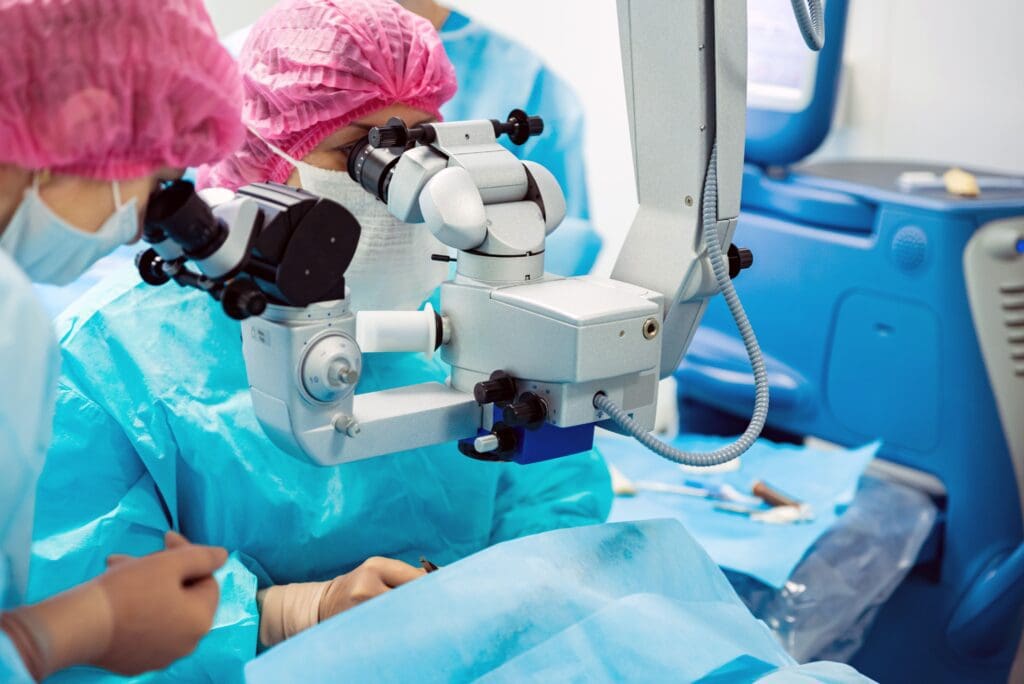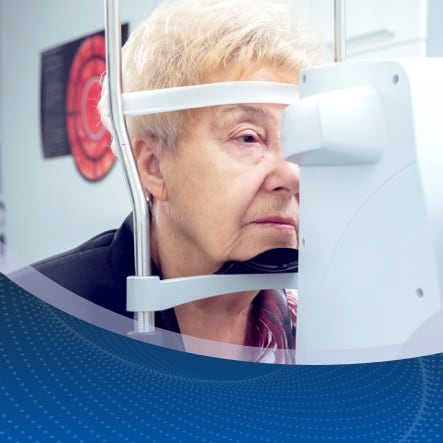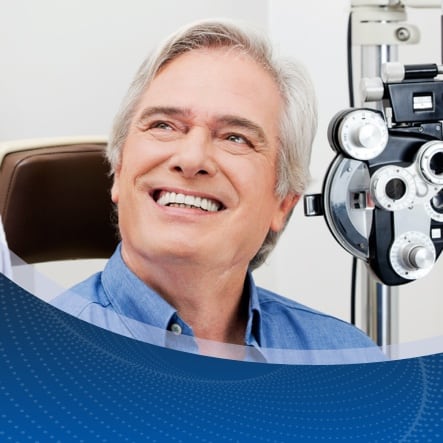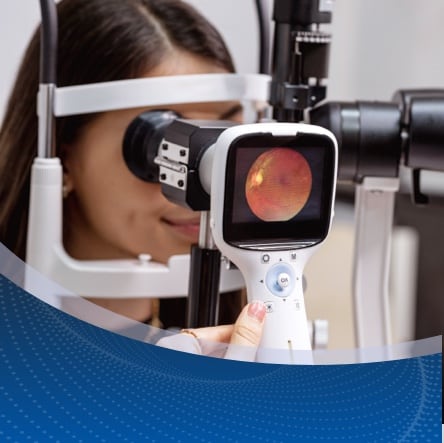Dottie noticed changes in her vision when she found herself constantly cleaning her glasses, “I thought there was something wrong with the glasses but later found out that it was the cataract.”
Dottie’s changes in her vision were gradual, and she didn’t realize how badly the cataract had affected her vision. “It gradually comes on, and you don’t realize the change in your vision.”
It wasn’t until a trip to the grocery store that she realized it was time to do something about her cataract. “On the way home, it was getting dark, and as I was looking for the white line in the road, it wasn’t there, and that scared me,” adds Dottie.
What is a Cataract?
“A cataract is when the lens inside the eye becomes cloudy, and you have difficulty seeing through the cloudy lens,” explains Dr. Paul Griffey, an ophthalmologist with Griffey Eye Care & Laser Center.
Types of Cataracts
Cataracts can form in various ways, including:
- Traumatic cataracts: These result from eye injuries. The treatment process can be complex as it may involve repairing surrounding lens structures.
- Secondary cataracts: Also known as posterior capsular opacification, hazy areas appear on your lens capsule or the membrane enveloping your lens. This condition is a common but easily treatable aftereffect of cataract surgery.
Cataract Signs and Symptoms
- Difficulty reading small print
- Difficulty seeing distances
- Cloudy or blurry vision
- Poor night vision
- Glare from headlights and lamps
According to Dr. Griffey, cataracts are something everyone will get eventually. Typically, surgery is needed between the ages of 65 and 75, but it can happen sooner if cataract symptoms interfere with someone’s daily life.
Cataract Treatment
Cataract symptoms and treatment go hand in hand. By performing early detection by spotting the symptoms early, you can make better treatment decisions.
Cataract surgery is a quick and easy procedure with a short recovery time. It is done on an outpatient basis, which means patients go home the same day of the surgery. Most patients notice an immediate improvement in their vision.
“During cataract surgery, we physically remove the cloudy lens and replace it with an artificial lens implant,” explains Dr. Griffey. “The lens implants have prescription power built in them. It’s like having your glasses built into your eye.”
“The surgery was over in no time flat. It was remarkable,” says Dottie. “I didn’t have any pain, and I was really surprised. Two weeks later, I had the other cataract removed, and when I did, my vision was amazing! You can’t believe the difference of what you’re not seeing. It was fantastic!”
More About Traditional Cataract Surgery and Laser Cataract Surgery
Traditional cataract surgery involves vision restoration through a standard lens implant, conducted manually by your doctor. They achieve this by using a blade to create a small cut in the eye. Typically, your insurance coverage extends to this form of surgery, save for co-pays and deductibles.
Utilizing the LenSx laser system, Laser Cataract Surgery offers precision, comfort, and a tailored approach. The surgeon gains assistance from computer control to execute the necessary cut using advanced laser technology, eliminating the need for blades. While this procedure suits most patients, it involves additional charges not covered by insurance. However, you can resort to available financing options.
What Questions Should I Ask My Doctor?
Some questions you may want to ask your doctor include:
- What are the early signs of cataracts?
- How often should I get my eyes checked to track cataract progression?
- What lifestyle changes can I make to slow cataract development?
- What are the potential risks and benefits of cataract surgery?
- What kind of lens implant will be used during my surgery?
- How long is the recovery period post-surgery?
- Are there any restrictions on activities I need to follow after the surgery?
- How will cataract surgery affect my other eye conditions, if I have any?
- What is the cost of traditional versus laser cataract surgery?
- Are there financing options available for laser cataract surgery?
A Note From Griffey Eye Center
For more information or to make an appointment at Griffey Eye Care and Laser Center, call (757) 410-9500 today!
**Please note that the suggestions provided in this blog are for general informational purposes only and may not be suitable for your specific insurance plan and cataract needs. It is important to consult a qualified healthcare professional for personalized advice and treatment.













